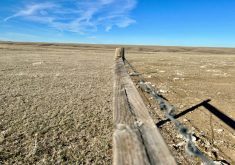Some representatives of the egg industry didn’t do it any favours in news coverage last week.
In a video on the Globe and Mail website, one Ontario farmer explained how he was moving from conventional cages to “enriched” housing, which the entire Canadian industry has decided to do, although over the next 20 years.
He said the old system “met all the concerns regarding animal welfare, but it didn’t give the ability of the hen to exhibit some of its natural behaviour such as perching, scratching or moving to a quiet nesting area to lay its eggs.”
Read Also

Canadian agriculture has to back up diverse trade if it wants it
Cheap and easy access to U.S. trade is a relic of the past and market diversification is expensive: What’s Canadian agriculture to do?
So allowing natural behaviour is not part of good animal welfare?
He then said that “in some of those (non-cage) systems you have to recognize that those hens could be injured because they have the ability to move around more.”
Are we then to assume that broiler producers are guilty of poor welfare practices because they let their chickens move around?
Even stranger logic came from Egg Farmers of Ontario general manager Harry Pelissero, who told a CBC “Marketplace” reporter that enriched cages were “moving in the right direction.” In other words, not all the way.
He then said, “Don’t ask my farmers to pay for your consumers’ morality,” and later that “it’s all about choice.”
Or in other words, “we need to keep giving consumers the choice of buying cheap eggs produced under poor animal-welfare conditions.”
Supply management representatives need to be careful about talking about giving consumers choice. How about the choice of buying even cheaper eggs from southern U.S. egg farmers working for giant corporations under conditions approaching indentured slavery?
Supply management is under enough pressure. Part of its survival will depend on demonstrating the highest animal-welfare practices, and not 20 years from now.
















